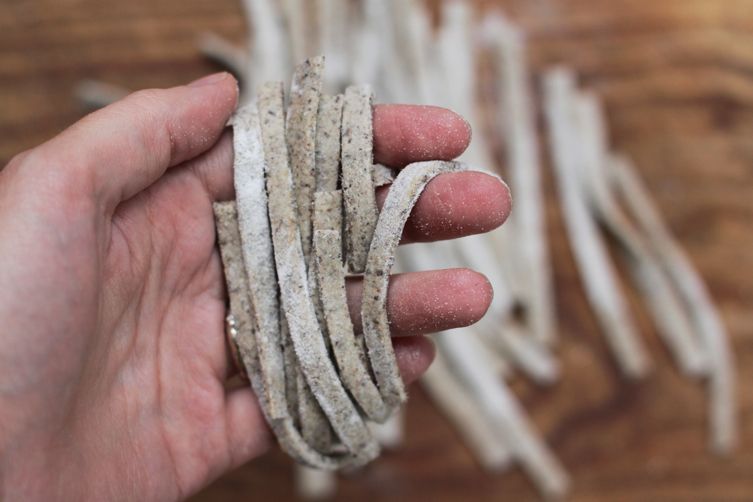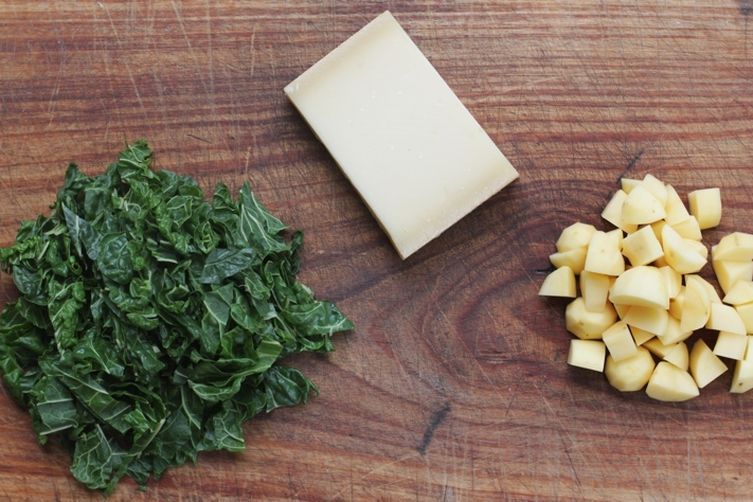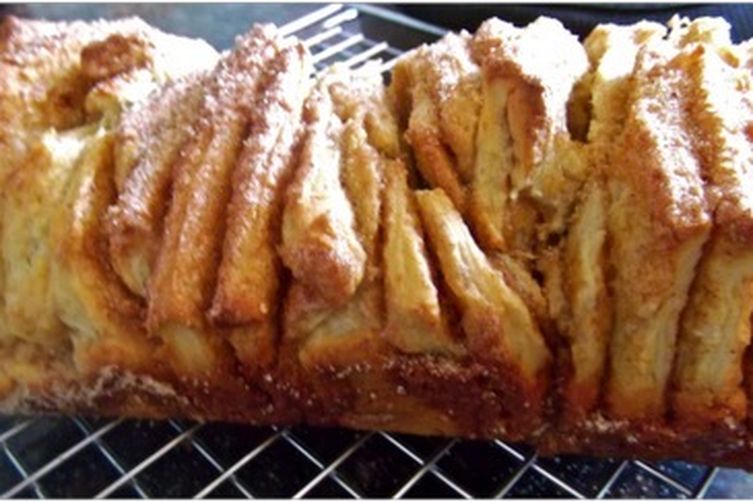Author Notes: This recipe (better known in Italian as Pizzoccheri Valtellinesi) from the steep valleys of the Valtellina in Lombardy comes from the Accademia del Pizzocchero, so this is as official as it gets. The original recipe called for double this amount to serve 4 people but it’s a very hearty dish and I found that halved (which are the proportions below), the recipe was still enough for 3 hungry people or 4, if you’re planning on serving this with other dishes. I also found the proportion of butter to be quite overwhelming so have reduced it slightly from 100 grams to 70 grams.
The combination of potatoes and savoy cabbage is the most classic way to serve pizzoccheri but depending on the season and availability, either silverbeet (Swiss chard) or green beans are often used instead. Aside from this one variation of the greens, this is the recipe and the locals are proudly, vehemently opposed to any changes, additions or substitutions to their pizzoccheri. And there’s good reason – it is delicious, and despite the humble (even apparently plain) ingredients, it is a rich and hearty winter dish.
The traditional cheese to use is either Valtellina Casera or Bitto. It may be difficult to find these unique cheeses outside of the region, but a close (though unorthodox) substitute would be Gruyere. An aged fontina could also do the trick.
—Emiko
Serves: 3 to 4
Ingredients
For the pasta:
-
2
cups (200 grams) of fine buckwheat flour
-
1/2
cup (50 grams) of plain flour
-
About 1/2 cup (125 milliliters) water
-
1
pinch of salt
For the pizzoccheri:
-
3 1/2
ounces (100 grams) of savoy cabbage or silverbeet/Swiss chard (about half a bunch)
-
4 1/2
ounces (125 grams) of potatoes
-
A few pinches of salt
-
1/3
cup (70 grams) of butter
-
1
clove of garlic
-
4 1/2
ounces (125 grams) of Valtellina Casera DOP or Bitto (Gruyere or Fontina in substitution), shaved?
-
2
ounces (about 60 grams) of Grana Padano, grated
-
Freshly ground pepper
Directions
For the pasta:
- Combine the two flours in a bowl and gradually add the water, mixing until well incorporated. Work the dough for a few minutes. It should be smooth and compact, but not dry or crumbly and it shouldn’t stick to your hands. If it’s dry, add a little more water until it becomes smooth. Rest the dough for at least 30 minutes.
- Roll the dough out with a rolling pin to a thickness of 2-3 millimetres (1/10 of an inch). With a sharp knife, cut the dough into large strips about 7-8cm (2.5-3 inches) wide then cut these into short pasta strips about ¼ inch thick.
For the pizzoccheri:
- Prepare the vegetables – if using savoy cabbage, slice out any tough stalks then chop into small pieces. If using silverbeet, cut out the central stalk and chop the leaves. Peel and chop the potatoes into small cubes.
- Boil a large pot of water, add a few pinches of salt and begin boiling the potatoes. After a couple of minutes, add the greens. After five minutes, add the pasta and let cook a further 10 minutes.
- Meanwhile, in a separate pan, melt the butter with the clove of garlic, sliced, until both the butter and the garlic are golden. Set aside until the pasta is ready.
- Remove the pizzoccheri and vegetables from the pot with a slotted spoon and place on a large, warmed platter. Scatter a handful of cheese over the top, drain more pizzoccheri and scatter again with cheese; repeat until you have removed all the vegetables and pizzoccheri from the pot and the cheese is uniformly distributed through and on top of the dish. Finally, pour over the frothy, browned butter. Serve as is — don’t mix it! — with plenty of freshly ground black pepper.

1 of 5

2 of 5

3 of 5

4 of 5

5 of 5

